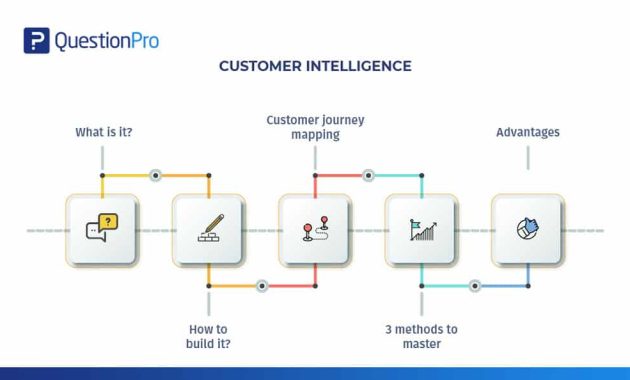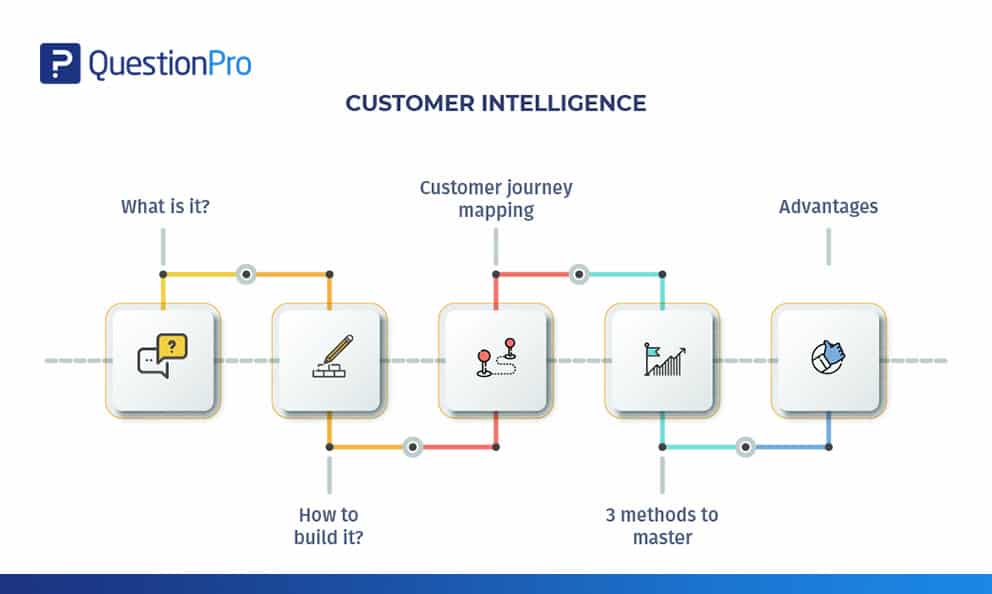
Business Intelligence Software for Powerful Customer Insights: A Deep Dive
In today’s data-driven landscape, businesses are constantly seeking ways to gain a competitive edge. The ability to understand customer behavior, preferences, and needs is paramount. This is where Business Intelligence (BI) software becomes an indispensable asset. This article explores the power of Business Intelligence software in providing powerful customer insights. It will cover its functionality, benefits, and how it can transform your business. We will also delve into the specifics of leveraging Business Intelligence software to unlock the full potential of your customer data.
The Evolution of Business Intelligence
Business Intelligence software has evolved significantly. Initially, it was primarily used for reporting and basic analysis. Now, it offers advanced analytics, predictive modeling, and real-time dashboards. This evolution reflects the increasing complexity of data. It also mirrors the growing demand for actionable insights.
Early BI software focused on simple reporting. It provided snapshots of historical data. Over time, the tools incorporated more sophisticated features. These included data warehousing and online analytical processing (OLAP). These advancements enabled faster and more in-depth analysis. The advent of cloud computing further revolutionized Business Intelligence. It made the software more accessible and scalable.
Understanding the Core Functionality of BI Software
At its core, Business Intelligence software helps businesses collect, analyze, and visualize data. This process allows for better decision-making. The key functionalities of BI software include:
- Data Collection and Integration: This involves gathering data from various sources. These sources include databases, spreadsheets, and CRM systems. The software then integrates this data into a unified view.
- Data Warehousing: This feature stores large volumes of data in a structured format. It is optimized for analysis.
- Data Analysis: BI software provides tools for analyzing data. These tools include data mining, statistical analysis, and trend identification.
- Reporting and Visualization: This is the process of presenting data in an easily understandable format. This can be through dashboards, charts, and reports.
- Predictive Analytics: Some BI software offers predictive modeling capabilities. These capabilities help businesses forecast future trends and outcomes.
The Benefits of Using Business Intelligence Software
Implementing Business Intelligence software offers numerous advantages. It can significantly improve business performance. Some key benefits include:
- Improved Decision-Making: BI software provides data-driven insights. This leads to better-informed decisions.
- Enhanced Customer Understanding: By analyzing customer data, businesses gain a deeper understanding. This helps tailor products and services to meet customer needs.
- Increased Efficiency: BI software automates data analysis and reporting. This frees up employees to focus on strategic tasks.
- Cost Reduction: By identifying inefficiencies and optimizing operations, BI software can help reduce costs.
- Competitive Advantage: Businesses that leverage BI software gain a competitive edge. They can make faster, smarter decisions.
How BI Software Delivers Powerful Customer Insights
Business Intelligence software excels at providing customer insights. It enables businesses to understand their customers better. It does so through various analytical methods:
- Customer Segmentation: BI software allows businesses to segment customers. This is based on demographics, behavior, and purchase history. This allows for targeted marketing campaigns.
- Customer Lifetime Value (CLTV) Analysis: This analysis helps businesses identify their most valuable customers. It also helps in focusing on retention strategies.
- Churn Analysis: By analyzing customer churn, businesses can identify patterns. This helps in predicting and preventing customer loss.
- Sentiment Analysis: Some BI software can analyze customer feedback. It analyzes reviews and social media mentions. This helps in understanding customer sentiment.
- Personalization: BI software provides insights. This allows businesses to personalize customer experiences.
Choosing the Right Business Intelligence Software
Selecting the right Business Intelligence software is crucial. The choice depends on the specific needs of the business. Consider the following factors:
- Data Sources: Ensure the software can connect to your data sources.
- Scalability: Choose software that can handle growing data volumes.
- Ease of Use: The software should be user-friendly. It should be easy for employees to understand and use.
- Features: Consider the features offered. Ensure they meet your business needs.
- Cost: Evaluate the cost of the software and its ongoing maintenance.
- Integration: The software should integrate with existing systems.
Case Studies: Real-World Applications of BI Software
Several businesses have successfully implemented Business Intelligence software. They have realized significant benefits. Here are a few examples:
- Retail: A retail chain used BI software to analyze sales data. They identified trends. They optimized inventory management. This led to increased sales and reduced waste.
- Healthcare: A hospital used BI software to analyze patient data. They improved patient care. They also optimized resource allocation.
- Finance: A financial institution used BI software to detect fraud. They also improved customer service.
Best Practices for Implementing BI Software
Successful implementation of Business Intelligence software requires careful planning. Follow these best practices:
- Define Clear Objectives: Clearly define the goals. Determine what you want to achieve with the software.
- Data Preparation: Ensure your data is clean, accurate, and well-organized.
- User Training: Provide adequate training. Ensure employees understand how to use the software.
- Data Governance: Establish data governance policies. Ensure data quality and security.
- Regular Monitoring: Continuously monitor the performance of the software. Make adjustments as needed.
The Future of Business Intelligence and Customer Insights
The future of Business Intelligence is bright. Advances in technology will continue to drive innovation. Key trends include:
- Artificial Intelligence (AI) and Machine Learning (ML): AI and ML will automate analysis. They will provide more advanced insights.
- Cloud-Based BI: Cloud-based solutions will become more prevalent. They will offer greater scalability and accessibility.
- Data Democratization: More employees will have access to data. This will empower them to make data-driven decisions.
- Real-Time Analytics: Real-time analytics will become more critical. Businesses will need to react quickly to changing conditions.
Maximizing Customer Insights with BI Software
Business Intelligence software is a powerful tool. It helps businesses gain powerful customer insights. By understanding its capabilities, businesses can transform their operations. They can also improve customer relationships. The key is to choose the right software. Also, implement it effectively.
By leveraging the insights provided by Business Intelligence software, businesses can:
- Improve Customer Satisfaction: Understand and meet customer needs.
- Increase Sales: Target the right customers with the right products.
- Reduce Costs: Optimize operations and identify inefficiencies.
- Gain a Competitive Edge: Make data-driven decisions.
Ultimately, the effective use of Business Intelligence software is essential. It is vital for success in today’s competitive market. This software empowers businesses. It equips them to make smarter, faster decisions. These decisions are based on real-time data. This leads to improved outcomes and stronger customer relationships.
[See also: The Role of Data Visualization in Business Intelligence, How to Choose the Right BI Tool, Data Governance Best Practices]

